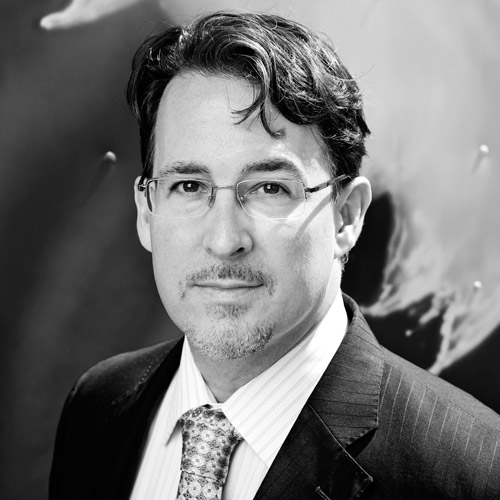The real estate market today isn’t what it was even five years ago—and that has an impact on everyone from agents to investment advisers. In the past few years, the trend toward urbanization has been evident. Approximately 3.7 billion people—more than half of the world’s population—now reside in cities. That number is expected to double by 2050, according to Forbes. This trend toward urbanization doesn’t just present an interesting statistic, but rather a major opportunity, says Byron Boston, president, chief executive officer, and co-chief investment officer for Dynex Capital Inc. based in Glen Allen, Virginia.
“As an entrepreneurial firm, Dynex Capital has always focused on the universe of real estate, housing, and other commercial real estate assets,” Boston told TheStreet, a leading digital financial media company. “This large [urbanization] trend provides a wonderful opportunity for us to generate return for our shareholders.”
Boston sat down with TheStreet last spring during the Milken Institute Global Conference in Los Angeles, California. He was a speaker at the conference, which brings together some of the “world’s most extraordinary people” to explore solutions to today’s most pressing challenges in financial markets, industry sectors, health, government, and education, according to Milken Institute’s website.
Regarding the trend toward urbanization, Boston says there are two large dynamics at play. In the United States, as well as many areas around the globe, there is “a huge demand” for current income, or yield. There is also a strong need for more private capital within the housing system. “Larger urbanization trends mean that you have to have appropriate housing for all those people, whether it’s affordable housing or the higher-end housing, and Dynex Capital is involved in that process and has been for the past thirty years,” he says. “So we’re looking for opportunities to make money and take advantage of these larger urbanization trends.”
Formed in 1988, Dynex Capital is an internally managed mortgage real estate investment trust (REIT) that manages diversified, high-quality, leveraged fixed-income portfolios, according to the company’s website. The goal of Dynex is to manage these assets in a way that provides its shareholders with attractive, risk-adjusted returns over the long-term. While speaking with REIT.com, Boston says that Dynex’s overall philosophy is one of executing “a simple strategy” with a “keen idea on managing overall risk exposure.”
“Our key tenants are conservative, short duration portfolio, diversified portfolio, with both commercial assets and residential assets, and overall shorter duration, high credit quality. So over 90 percent of the portfolio is AAA or higher,” Boston explains. “Approximately 100 percent of the portfolio all matures or resets within ten years with a huge concentration of our residential assets inside of five years and with longer duration assets being in the commercial sector. Sixty percent of our invested capital is allocated to the commercial sector. Forty percent of our invested capital is allocated to the residential sector. With the diversity, the portfolio is structured to perform in a variety of market environments.”
To say the seasoned investment professional understands fixed-income capital markets would be an understatement. During his thirty-year career, Boston has held numerous leadership positions in the asset management and investment banking community, and has personally founded two successful public companies, according to his portfolio on Dynex’s website.
After graduating from Dartmouth College with a degree in economics, Boston began his career as a corporate banker with Chemical Bank, where he focused on direct corporate loans and bond issuances. He then returned to business school at the University of Chicago and earned a master’s degree in business, specializing in finance and accounting, before joining the fixed-income training program at Credit Suisse First Boston.
Boston went on to enjoy successful tenures at major firms, including Lehman Brothers, Freddie Mac, and Sunset Financial Resources—a mortgage REIT specializing in high-quality residential and commercial loans and securities. After consulting with Redwood Trust, Boston joined Dynex Capital in 2008.
For any REIT company, interest rates are a major factor and have to be monitored and forecast on a constant level. Speaking with REIT.com, Boston says there are several other factors to consider though when it comes to impact on operations. “One of the largest macro factors today happens to be the central bank involvement in free flowing capital markets,” he told REIT.com. “One of the key components happens to be our financing costs are low. Our financing costs have been low since 2008 and they’ve been relatively stable. We expect those financing costs to continue to be relatively low and stable for some time in the future. We monitor central bank activity very closely, which obviously will be a function of the overall economic growth globally.”
During the Global Conference, real estate as an investment was a major talking point, as Boston shared his thoughts with TheStreet pertaining to how a real estate portfolio will return over the long-term. Because Dynex is a real estate investment trust, the company gives shareholders the opportunity to combine fixed income characteristics with real estate.
“If you buy my stock, you’re giving me your money to manage for you; I have a fiduciary responsibility,” Boston explains. “I’m going to turn and invest that money as a lender in the real estate market. Because I am a real estate investment trust, my obligation is to pass back to you—I’m not taxed at the corporate level—so I pass my income to you. So I have an above average dividend yield and that’s the attraction of a real estate investment trust.”
Boston says this merges two needs—the return of current investors and current income, along with the need for private capital in the real estate markets. “When you think about urbanization trends, you say, ‘How can we get that capital flowing into the urban areas to provide better housing, better shopping malls, better transportation, better infrastructure?’” he asks. “That’s how you marry the two together. There’s a huge demand globally for current income, and those are my shareholders.”

